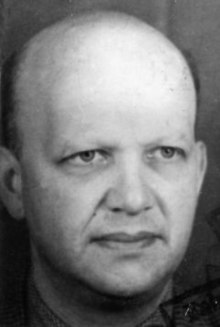This article includes a list of references, related reading, or external links, but its sources remain unclear because it lacks inline citations .(September 2020) |
- ↑ Pringle, Heather (2006), The Master Plan: Himmler's Scholars and the Holocaust (Google Books, search inside), Hyperion, p. 307, ISBN 1401383866 .
- 1 2 3 4 5 6 7 8 Pringle 2006, p. 125.
- 1 2 3 4 Pringle 2006, p. 126.
Sources
- Ernst Baltrusch: Altheim, Franz. In: Peter Kuhlmann, Helmuth Schneider (Hrsg.): Geschichte der Altertumswissenschaften. Biographisches Lexikon (= Der Neue Pauly. Supplemente. Vol. 6). Metzler, Stuttgart/Weimar 2012, ISBN 978-3-476-02033-8, Sp. 24 f.
- "Franz Altheim". Martin Luther University of Halle-Wittenberg (in German). Retrieved September 3, 2020.
Franz Altheim | |
|---|---|
 | |
| Born | 6 October 1898 Frankfurt, German Empire |
| Died | 17 October 1976 (aged 78) Münster, West Germany |
| Nationality | German |
| Academic background | |
| Alma mater | |
| Thesis | Die Komposition der Politik des Aristoteles (1921) |
| Doctoral advisor | |
| Other advisors | |
| International | |
|---|---|
| National | |
| Academics | |
| People | |
| Other | |